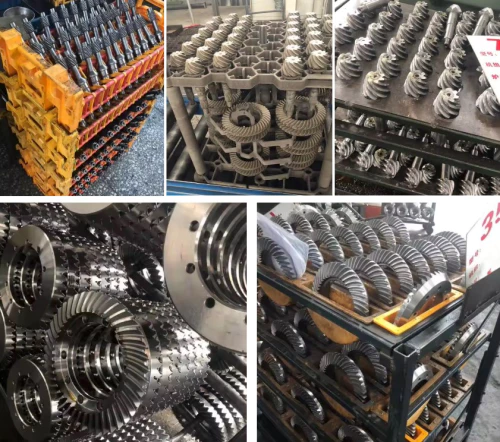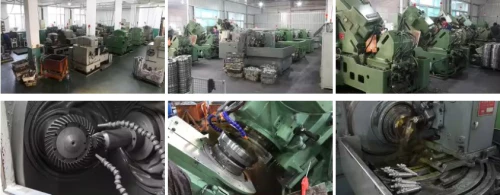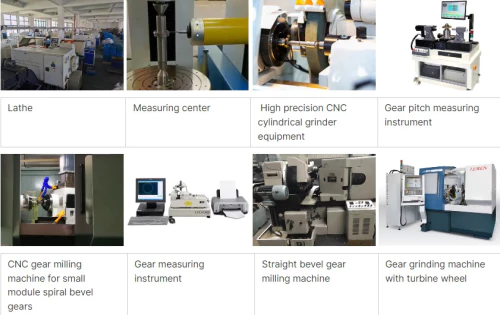Forging Bevel Gear Dimensional Accuracy Validation Protocols
Forging bevel gears are a type of bevel gears that are manufactured through the forging process. Forging involves shaping metal through the application of localized compressive forces, typically using a die or hammer. In the case of bevel gears, the forging process is used to form the gear teeth and create the desired gear geometry.
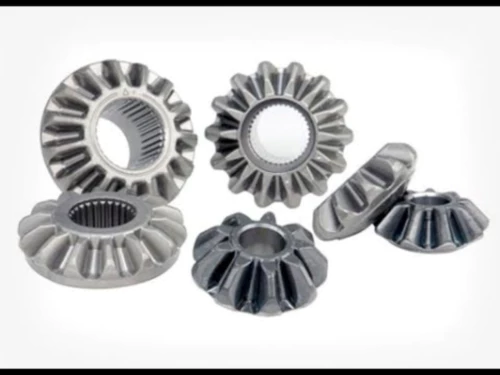
Advantages of Forging Bevel Gears
1. High Strength
2. Improved Fatigue Resistance
3. Precise Gear Tooth Geometry
4. Cost-Effectiveness
5. Versatility in Material Selection
6. Enhanced Structural Integrity
7. Tailored Mechanical Properties
8. Reduced Lead Time
9. Environmental Sustainability
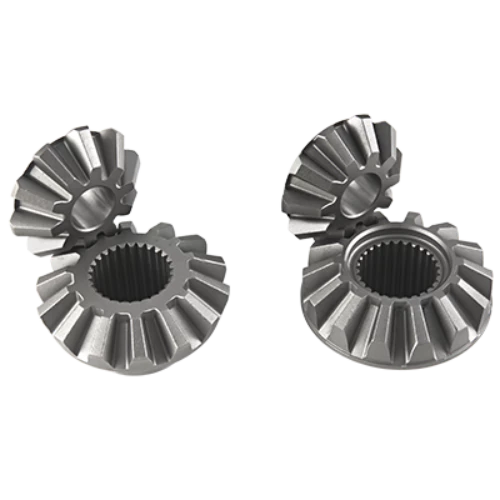
Working Principles of Forging Bevel Gears
Forging bevel gears operate based on the fundamental principles of gear mechanisms. They consist of two intersecting shafts, each with a conically shaped gear (bevel gear) mounted on it. The teeth of the bevel gears are designed to have a specific tooth profile, such as straight, spiral, or hypoid, depending on the application requirements.
When the input shaft rotates, the engagement of the teeth of the bevel gears causes a transfer of rotational motion and torque to the output shaft. The contact between the mating teeth ensures power transmission while maintaining proper alignment and smooth operation.
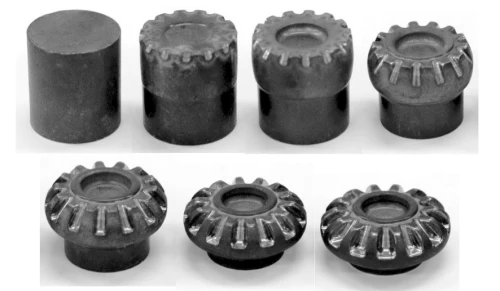
Applications of Forging Bevel Gears
1. Automotive Industry
The automotive industry utilizes forging bevel gears in various applications, such as in the transmission system, differential gears, and steering mechanisms. The high strength and precise gear tooth geometry of forging bevel gears contribute to improved performance and durability in demanding automotive environments.
2. Industrial Machinery
Forging bevel gears find extensive use in industrial machinery, such as in gearboxes, machine tools, and conveyor systems. The cost-effectiveness and versatility in material selection of forging bevel gears make them suitable for a wide range of industrial applications.
3. Aerospace and Defense
The aerospace and defense sectors rely on forging bevel gears for critical applications, including aircraft engines, missile systems, and naval machinery. The enhanced structural integrity and high strength of forging bevel gears ensure reliable performance in demanding aerospace and defense environments.
4. Renewable Energy
In the renewable energy sector, forging bevel gears are used in wind turbines, hydroelectric generators, and solar power systems. The tailored mechanical properties and improved fatigue resistance of forging bevel gears contribute to efficient and reliable energy conversion.
5. Marine and Shipbuilding
Forging bevel gears play a vital role in marine and shipbuilding applications, such as propulsion systems, steering mechanisms, and anchor winches. The precise gear tooth geometry and enhanced structural integrity of forging bevel gears ensure smooth and efficient operation in marine environments.
6. Agricultural Machinery
Agricultural machinery, including tractors, harvesters, and irrigation systems, benefit from the use of forging bevel gears. The cost-effectiveness and versatility in material selection of forging bevel gears make them suitable for various agricultural applications.
7. Power Generation
Forging bevel gears are essential components in power generation systems, such as turbines, generators, and power transmission equipment. The high strength and precise gear tooth geometry of forging bevel gears contribute to efficient and reliable power generation.
8. Robotics and Automation
Forging bevel gears are widely used in robotics and automation systems, where precise motion control is crucial. The cost-effectiveness, versatility in material selection, and precise gear tooth geometry of forging bevel gears make them ideal for various robotic and automated applications.
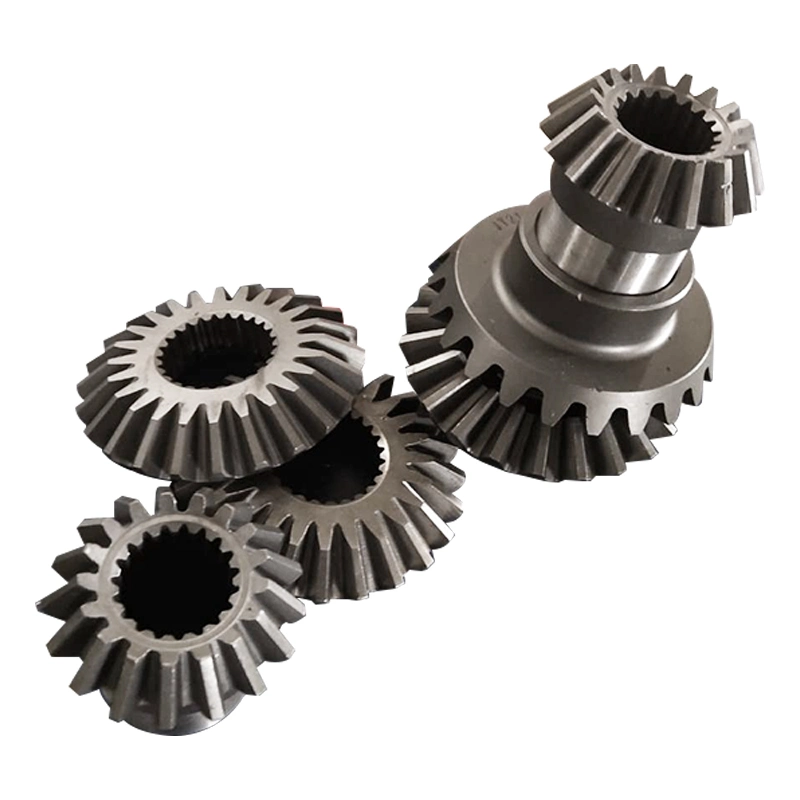
Installation and Maintenance of Forging Bevel Gears
Installation:
1. Proper Alignment
2. Lubrication
3. Mounting Bolts
4. Inspection
Maintenance:
1. Lubrication
2. Cleaning
3. Inspection
4. Replacements
5. Gearbox Maintenance
6. Load Monitoring
7. Training and Expertise
8. Record-Keeping
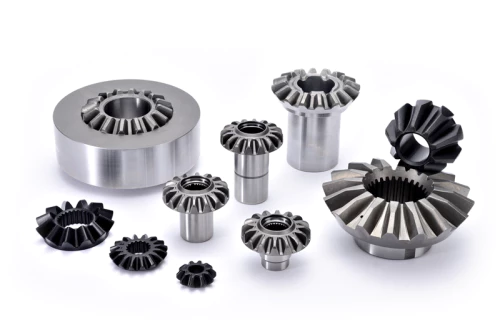
How to Select the Right Forging Bevel Gear
1. Application Requirements
2. Design and Specifications
3. Material Selection
4. Quality and Reliability
5. Load-Carrying Capacity
6. Efficiency and Performance
7. Customization and Adaptability
8. Cost Considerations
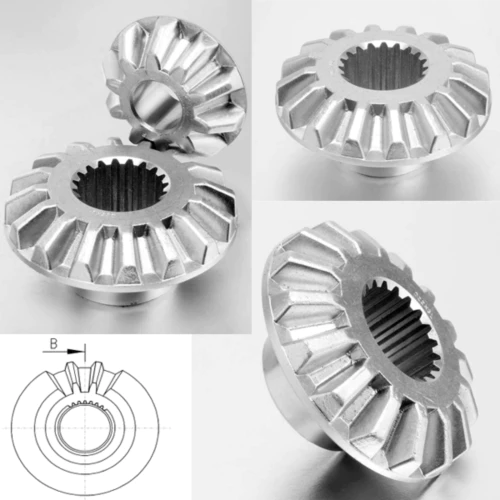
Shaoxing Chaoli: Leading Manufacturer of Forging Bevel Gears
Shaoxing Chaoli is a professional manufacturer of gears in China. Its products are mainly sold to hundreds of fixed suppliers such as domestic steel rolling mills, shipyards, precision machine tool factories, automation machinery factories, and various distribution companies, and exported to Western Europe, the Middle East, Southeast Asia, and other countries and regions.
The developing Shaoxing Chaoli currently has hundreds of employees, including many engineers, with fixed assets of 20 million yuan and an annual output value of 50 million yuan.
The company has a complete set of strict quality management systems, equipped with a series of precision measuring instruments such as optical projectors and 16 full-process production monitoring systems. Shaoxing Chaoli has considerable competitiveness in the same industry.
